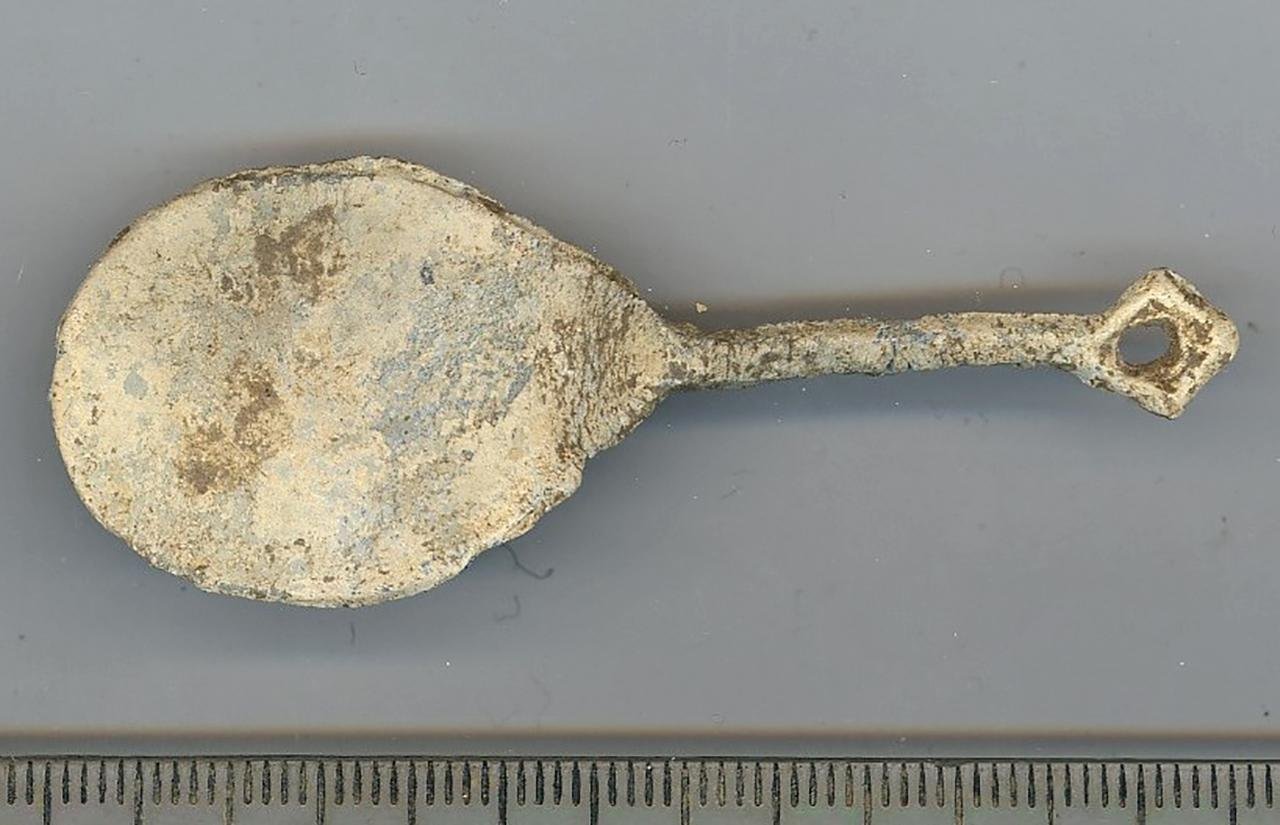A unique bronze spoon from 2,000 years ago, thought to have played a role in divination rituals, has been uncovered on the Isle of Man. Rob Middleton, a metal detectorist, found this object on David Anderson’s farm in Patrick. This spoon stands out as the first of its type to surface on the island. While similar items have been found in Britain, Ireland, and France, only 28 such spoons exist in the world.
 An early post-medieval lead spoon, CC BY-SA 2.0
An early post-medieval lead spoon, CC BY-SA 2.0
Allison Fox, the Curator for Archaeology at Manx National Heritage, called the discovery “one of the most intriguing objects ever discovered on the island.” She also stated that Iron Age finds are relatively scarce in the region. This rarity makes the spoon an especially valuable piece of evidence for prehistoric activity on the Isle of Man.
The spoon has a broad, strawberry-shaped bowl with a circular handle decorated with spiral patterns. Two finely engraved lines create a cross at the bottom of the bowl, dividing it into four quadrants. While its function remains unclear, researchers think it might have played a role in ritual ceremonies to predict future events. “It has been suggested that liquid of some form would have been poured into the spoon marked with the cross, and whatever quarter it landed in would tell something about the future,” Fox explained.
This find matches earlier discoveries of similar spoons, often found in pairs—one with an incised cross and the other with a small hole. Experts think someone might have dripped a liquid, maybe water, beer, or even blood, from the spoon with the hole into the one marked with a cross, creating an ancient form of fortune-telling or divination.
The find’s significance extends beyond its rarity. It sheds light on potential ritual practices by Iron Age communities on the Isle of Man. The island was home to small settlements living in timber or stone roundhouses. It also had fortified enclosures, like those at South Barrule and Cronk ny Merriu. Despite its relative isolation, signs point to links with Roman Britain, maybe through trade. However, no direct signs of Roman presence have been found.
The Patrick-Middleton spoon has been donated to the Manx National Collections. Manx National Heritage now looks after it and people can see it at the House of Manannan museum from February 14, 2025.
More information: Manx National Heritage





